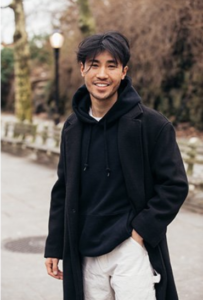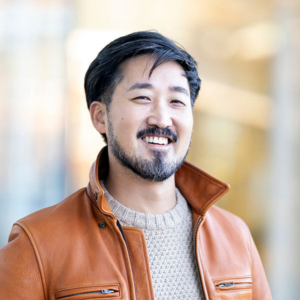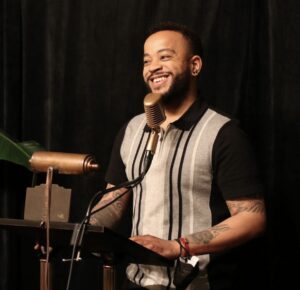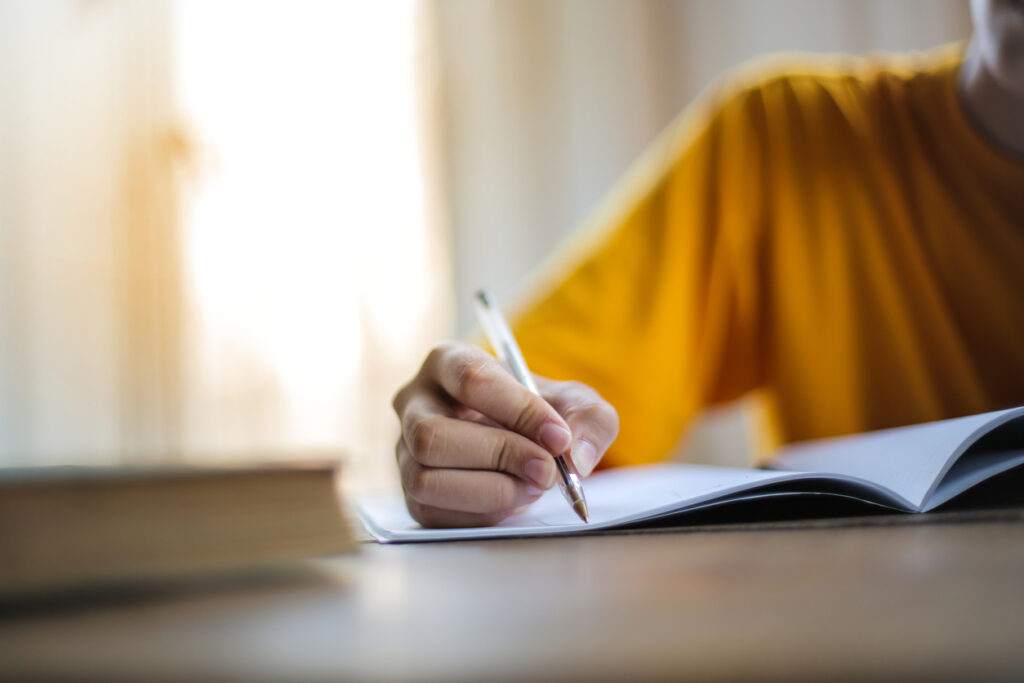From NCTE’s Standing Committee on Global Citizenship
This post was written by NCTE member Darius Phelps, who is also a member of the Standing Committee on Global Citizenship. As committee members, we have discussed and explored how we can amplify racial literacy through the lens and power of poetry in our classrooms. Poet, educator, adjunct instructor, and Brooklyn Poets intern, Darius Phelps gives a firsthand account of how he addresses amplifying Asian American poets & diaspora through poetry in his classroom as a literacy professor.
 Fellow Global Citizenship Standing Committee member Dr. Don Vu amplifies and inspires the need to cultivate an equitable shelf with his debut book, Life, Literacy, and the Pursuit of Happiness. With my practice heavily rooted in his work, when I think about how I can train my preservice teachers and graduate students, I am reminded of this quote: “It is time to move our schools from being compliant to being committed. The movement starts with us looking within ourselves to be change makers in our schools. The opportunities for change are right before us, right now. Let’s commit to the change.” (2021, 50)
Fellow Global Citizenship Standing Committee member Dr. Don Vu amplifies and inspires the need to cultivate an equitable shelf with his debut book, Life, Literacy, and the Pursuit of Happiness. With my practice heavily rooted in his work, when I think about how I can train my preservice teachers and graduate students, I am reminded of this quote: “It is time to move our schools from being compliant to being committed. The movement starts with us looking within ourselves to be change makers in our schools. The opportunities for change are right before us, right now. Let’s commit to the change.” (2021, 50)
As a poet and literacy professor, I advocate Don’s work of amplifying the power of reading, that specifically poetry is that change, that bridge to liberation when it comes to building a new world for our students. I believe that by utilizing poetry as architecture, especially via a racially literate lens with emphasis on (re)humanizing education, we can build pathways to true liberation in our classrooms, communities, and beyond.
In doing so, I look to the work of those who inspire me to be better on a daily basis, whether that’s as an educator, a scholar, a poet, or even just a human being still on his road to emancipating his younger, wounded self. As Vu states, “Without life experiences that build valuable background knowledge, students will be less likely to make connections to the things they will learn in school” (2021, 115), and the following poets showcase that with their incomparable talents.
Connection, community, and vulnerability. These are the qualities that initially drew me to fellow poet of color Kyle Liang. Liang’s forthcoming full-length collection, Good Son, is one that will change the face of what it means to Asian American in a desensitized America, longing for something intangible. Continuing on a soul level with his archaeology of self—diving into a plethora of subjects, including manhood and navigating an interracial relationship, Kyle writes from the psalms founded on his heartstrings. A voice that is a rarity, especially amongst males in this field, Liang’s is one that will go on to win a Pulitzer Prize, setting precedence for true authentic truth across the Asian American diaspora.
 I would not be able to write this post and truly appreciate the depths of what poetry can amplify, especially in the AANHPI community, without the guidance and work of my mentor, Jason Koo, one of the few Korean American male poets in America and founder/executive director of Brooklyn Poets.
I would not be able to write this post and truly appreciate the depths of what poetry can amplify, especially in the AANHPI community, without the guidance and work of my mentor, Jason Koo, one of the few Korean American male poets in America and founder/executive director of Brooklyn Poets.
Under Koo’s guidance, I have learned within the past year the importance of the archaeology of self (Sealey-Ruiz 2022) through poetry, but also the importance of applying diverse voices, AANHPI in particular, such as Lee Herrick, Ken Chen, Tina Chang, and Chiwan Choi—posing the question, “What does it mean to honor and embrace your origins?” The people, the places, but most importantly the memories and experiences are what help us honor and embrace this with open arms. When we do this, we can lay the foundation for a better world, rooted in radical literacy, cultural appreciation, appropriation, and radical love.
“With compassion and through hope, creating the conditions of culture in schools will help us make a positive difference in the lives of all students. It can change the world. One child, one teacher, one book, and one pen at a time” (Vu 2021, 139). Koo, Liang, and Vu have shown me that everyone deserves a seat at the table, and if not, then let’s build our own. All of our voices are worth celebrating.
References:
Sealey-Ruiz, Yolanda. “An Archaeology of Self for Our Times: Another Talk to Teachers.” English Journal, 111, no. 5 (May 2022): 21-26.
Vu, Don. 2021. Life, Literacy, and the Pursuit of Happiness: Supporting Our Immigrant and Refugee Children through the Power of Reading. Scholastic.

Darius Phelps is a doctoral student at Teachers College, Columbia University. He is an adjunct professor at CUNY Queens, Hunter College, and Teachers College. An educator, poet, spoken word artist, and activist, Darius writes poems about grief, liberation, emancipation, reflection through the lens of a teacher of color, and experiencing Black boy joy. His poems have appeared in NYSEC’s English Record, NCTE’s English Journal, Pearl Press magazine, and ëëN magazine’s “The 2023 Valentine Issue.” Recently, he was featured on WCBS and highlighted the importance of Black male educators in the classroom. Darius can be contacted via email.
The Standing Committee on Global Citizenship works to identify and address issues of broad concern to NCTE members interested in promoting global citizenship and connections across global contexts within the council and within members’ teaching contexts.
It is the policy of NCTE in all publications, including the Literacy & NCTE blog, to provide a forum for the open discussion of ideas concerning the content and the teaching of English and the language arts. Publicity accorded to any particular point of view does not imply endorsement by the Executive Committee, the Board of Directors, the staff, or the membership at large, except in announcements of policy, where such endorsement is clearly specified.

